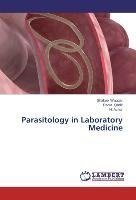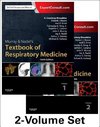
-
 Anglický jazyk
Anglický jazyk
Parasitology in Laboratory Medicine
Autor: Shakeel Waqqar
A parasite is an organism that lives on or in a host organism and gets its food from or at the expense of its host. There are three main classes of parasites that can cause disease in humans: protozoa, helminths, and ectoparasites. Infectious diseases are... Viac o knihe
Na objednávku, dodanie 2-4 týždne
56.06 €
bežná cena: 63.70 €
O knihe
A parasite is an organism that lives on or in a host organism and gets its food from or at the expense of its host. There are three main classes of parasites that can cause disease in humans: protozoa, helminths, and ectoparasites. Infectious diseases are responsible for 17 million deaths each year, which represents one third of the annual mortality worldwide. Infectious diseases are directly responsible for 43% of deaths in developing countries, compared to 1% in industrialized countries. At present more than 3 billion people are afflicted with major parasitic diseases. Among the "top ten" world health problems are: infection of 2.5 billion people with various species of roundworms, 300 million with flatworms, and 1.5 billion with unicellular parasites. It is estimated that these parasites account for more than 3.5 million deaths annually. These infections primarily affect poor populations living in tropical and subtropical climates, with children being the most vulnerable to infection. Many devastating diseases in tropical countries of the world are the result of parasitic infections.
- Vydavateľstvo: LAP LAMBERT Academic Publishing
- Rok vydania: 2013
- Formát: Paperback
- Rozmer: 220 x 150 mm
- Jazyk: Anglický jazyk
- ISBN: 9783659400889












